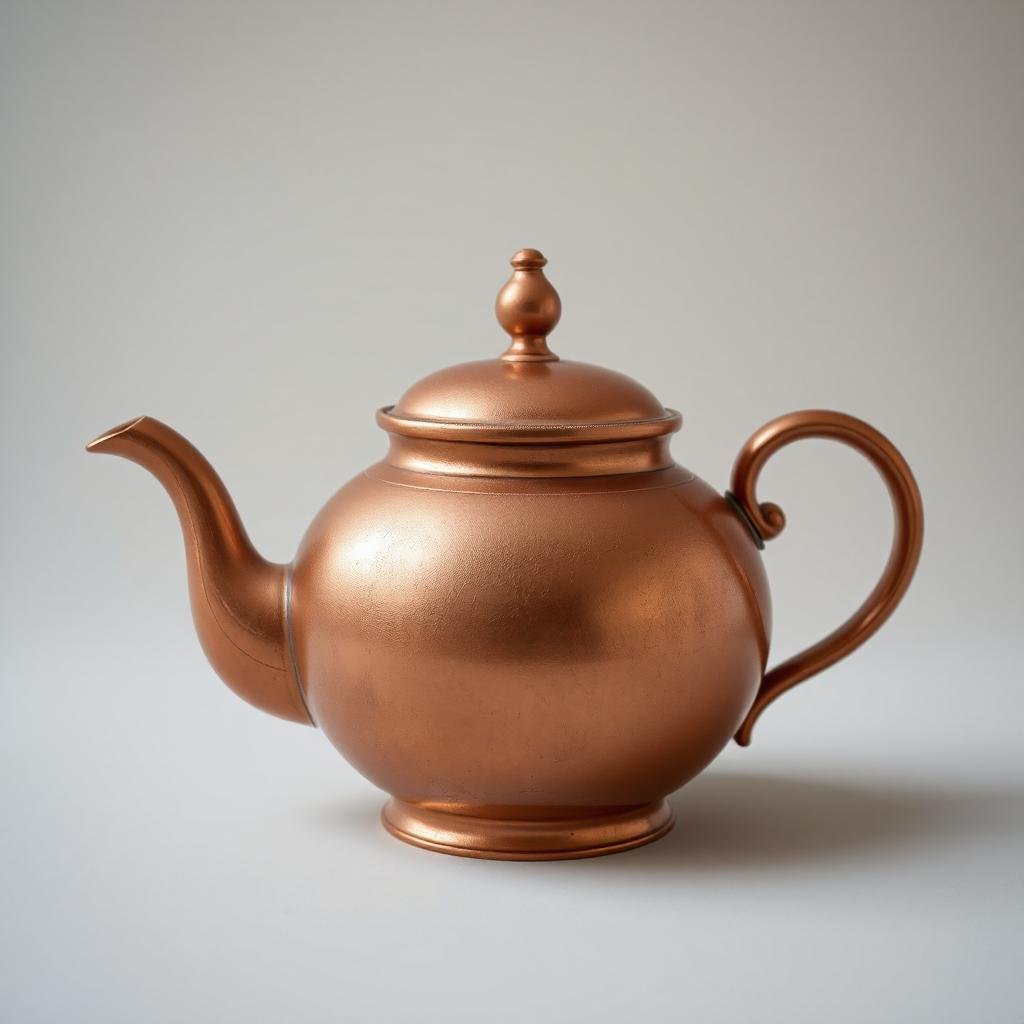What is the Counter Argument for Russell’s Teapot? Imagine someone tells you that there is a tiny teapot floating in space, too small to be detected by any telescope. Would you believe them? Philosopher Bertrand Russell used this idea to challenge religious beliefs, arguing that the burden of proof is on those who make extraordinary claims, not those who doubt them. This analogy, known as Russell’s Teapot, suggests that the existence of God is just as unlikely as an undetectable teapot in space. But is this argument as solid as it seems? Many critics have pointed out flaws in Russell’s analogy.
What is the Counter Argument for Russell’s Teapot? This article explores the counterarguments against Russell’s Teapot and examines whether it truly holds up under scrutiny.
The Basics of Russell’s Teapot
Before delving into the counterarguments, it’s essential to understand what Russell’s teapot is all about. In his essay “Is There a God?” Russell points out that the existence of the teapot is not something that can be proven or disproven based on current scientific methods or reasoning.
He used this thought experiment to argue the burden of proof lies on anyone making a claim about existence. If someone claims the teapot exists, it is their responsibility to provide evidence for that claim, not the responsibility of others to disprove it.

How do You Know if Old/Vintage Teapots are Safe to Use?
This idea has generated much discussion, especially regarding the existence of God and other metaphysical claims. Many people accept Russell’s challenge, arguing that extraordinary claims require extraordinary evidence.
Russell’s Teapot Argument
Origins and Background:
Russell’s Teapot argument was first introduced by Bertrand Russell in 1952, as a way to illustrate the burden of proof in discussions about the existence of a supreme being.
The Teapot Analogy:
The analogy goes like this: Imagine I claim there is a tiny teapot orbiting the sun, too small to be detected by our current technology. It would be unreasonable for me to expect you to believe in its existence without providing any evidence.
Significance in Epistemology:
This whimsical teapot story serves as a powerful reminder of the importance of evidence and rationality in forming beliefs. It challenges the idea that unfalsifiable claims should be accepted without question.
Counterarguments to Russell’s Teapot
1. The Difference Between God and a Teapot:
One major counterargument is that Russell’s analogy treats God like a physical object that can be detected or measured. A teapot is material and, in theory, could be observed if technology were advanced enough.
God, however, is often described as non-material, beyond physical detection. Critics argue that comparing God to a teapot ignores fundamental differences between the two.
Additionally, religious belief is not just about empirical evidence; it often involves personal experience, historical testimony, and philosophical reasoning.
Unlike a teapot, which is a specific, physical object, God is often understood as a transcendent being, making direct comparison flawed.
2. The Nature of Evidence and Belief:
Russell’s Teapot assumes that belief should be based solely on empirical evidence. However, many counter arguments suggest that belief in God is based on more than just physical proof.
Philosophers like Alvin Plantinga argue that belief in God can be “properly basic,” meaning it does not require direct evidence to be rational. Many human beliefs, such as moral values or mathematical truths, are accepted without physical proof.
For example, many religious traditions cite personal encounters, miracles, or logical reasoning (such as the cosmological or teleological arguments) to support belief in God. This makes belief in God different from believing in a teapot floating in space.
3. The Burden of Proof Question:
Russell’s argument suggests that the burden of proof always lies with the person making a claim. However, some critics argue that this is not always the case.
In many philosophical discussions, both sides bear some responsibility for supporting their claims. If someone asserts that God does not exist, they, too, must justify their belief.
Additionally, throughout history, many people have reported experiences of God, religious visions, and moral insights that they attribute to a divine source.
While skeptics may reject these claims, dismissing them without consideration may be an unfair approach. The question of God’s existence is more complex than a simple assertion about a floating teapot.
What is the Counter Argument for Russell’s Teapot?
The Value of Objective Inquiry
Some critics argue that Russell’s teapot undermines a valuable aspect of philosophical inquiry: the ability to explore and question ideas.
By dismissing the teapot due to a lack of evidence, we might inadvertently discourage investigation and curiosity about unexplained phenomena. They assert that, inherently, philosophy and science thrive on the exploration of the unknown.
In the scientific community, unexplained phenomena often serve as a catalyst for further investigation. The lack of immediate evidence does not equate to a rejection of the concept itself.
Instead, it encourages a quest for deeper understanding, potentially leading to new discoveries. In essence, some feel that Russell’s focus on skepticism may discourage people from exploring mysterious or unconventional ideas.
The Coexistence of Belief and Evidence
Another counterargument pertains to the relationship between belief and evidence. Many people exist within a spectrum of beliefs that encompass both empirical evidence and the subjective experience of faith.
Dismissing the existence of Russell’s teapot or similar claims based solely on lack of evidence may not adequately reflect the reality of how individuals formulate their beliefs.
For example, many cultures place intrinsic value on stories and beliefs that may not be empirically substantiated. These narratives often inform societal values, ethics, and norms, playing a crucial role in community cohesion and identity.
Thus, proponents of this counterargument assert that a purely evidence-based approach to belief systems can be overly reductionist and may fail to consider the broader human experience.
Critiques and Challenges to the Counter Argument
Identifying Weaknesses in the Counter Argument:
So, you know how everyone’s buzzing about Russell’s teapot? Well, it turns out, not everyone is on board with the idea. Some folks have been poking holes in this whole teapot argument, pointing out some weaknesses that make us go.

Addressing Common Criticisms:
Of course, with any hot topic, there are always critics lining up to share their two cents. We’ll take a look at some of the most common criticisms thrown at the counter argument for Russell’s teapot and see if they hold up under scrutiny.
Strengths and Weaknesses of the Counter Argument
Analyzing the Validity of Counter Argument Claims:
Let’s put on our detective hats into the validity of the counter argument for Russell’s teapot. Are the claims made in support of this argument airtight, or are there some cracks that need patching up? We’ll separate the strong arguments in this philosophical investigation.
Considering Alternative Perspectives:
Just like choosing between tea and coffee in the morning, the counter argument for Russell’s teapot isn’t the only option on the table.
We’ll explore some alternative perspectives that challenge the conventional wisdom surrounding this teapot conundrum. Who knew a simple teapot could stir up so much debate?
Conclusion
Russell’s Teapot is a powerful analogy that challenges the idea of believing in things without evidence. However, it has several weaknesses. The main counterarguments point out that God is not a simple physical object, that belief in God is based on more than just empirical proof, and that both sides of the debate have a responsibility to provide justification for their views.
Additionally, the limits of scientific inquiry and the deep historical role of religion make the analogy less effective than it first appears.While Russell’s Teapot remains a useful tool in philosophical discussions, it does not fully address the complexities of religious belief. The debate about God’s existence is far more profound than a floating teapot, and understanding both sides of the argument leads to a more thoughtful discussion on faith, reason, and the nature of belief.




I quite like reading an article that will make men and women think.
Also, thank you for permitting me to comment!
Ihfuwhdjiwdjwijdiwfhewguhejiw fwdiwjiwjfiwhf fjwsjfwefeigiefjie fwifjeifiegjiejijfehf https://uuueiweudwhfuejiiwhdgwuiwjwfjhewugfwyefhqwifgyewgfyuehgfuwfuhew.com
Мебель, которая создает атмосферу роскоши.
Дизайнерская мебель премиум-класса http://www.byfurniture.by .
Ihfuwhdjiwdjwijdiwfhewguhejiw fwdiwjiwjfiwhf fjwsjfwefeigiefjie fwifjeifiegjiejijfehf https://uuueiweudwhfuejiiwhdgwuiwjwfjhewugfwyefhqwifgyewgfyuehgfuwfuhew.com
Reading your blog is always a delight; your writing captivates me every time.
Thank You.
Your blog is my go-to place for enlightening and insightful posts.
Thank You 😊
Незабываемые впечатления с Fun Sun в Турции, позвольте себе.
Туроператор Фан Сане туры в Турции из Москвы https://www.bluebirdtravel.ru .